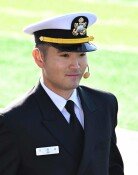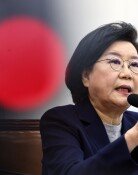[Editorial] Ratification of FTA Urgent
[Editorial] Ratification of FTA Urgent
Posted April. 22, 2009 06:39,
North Koreas rocket launch and inter-Korean tension over South Koreas joining of the Proliferation Security Initiative are pending issues for the United States. Washington has blasted the rocket launch as a provocative act. As the South expresses its support for U.S. policy, the initiative has grown into a matter for the two Koreas. Pyongyang has raised tension while rejecting Seouls policies of engagement and cooperative relations with Washington. The United States and the South, however, should overcome the challenges posed by the North to nurture their strategic alliance suitable for the 21st century and help the two allies pursue mutual value and contribute to world peace.
In a letter sent to President Obama Monday, Senate Finance Committee Chairman Max Baucus and Republican Senator Charles Grassley urged the president to move forward with South Korea. In response to the Norths launch of its Taepodong-2 missile and announced intent to resume its nuclear program, the two senators urged Washington to maintain and expand its strong and proven partnership with Seoul. As both allies seek to defuse threats to national security, they said the United States must also work to resolve bilateral economic issues for the sake of common prosperity. Though they reiterated previous arguments that disputes over the auto and beef sectors should be resolved under principles of the bilateral free trade agreement, it is inspiring for them to consider the deals ratification as a measure to strengthen the bilateral partnership.
The Foreign Affairs, Trade and Unification Committee of South Koreas National Assembly also plans to vote on the agreements ratification today. Despite strong resistance from anti-U.S. protesters and certain politicians, Seoul has made steady progress to keep its promise with Washington. Along with the South Korea-U.S. Economic Conference, the American Chamber of Commerce in Korea submitted a recommendation to the Obama administration and Congress last week to ratify the agreement as soon as possible. The White House should consider the moves by the two nations to ratify the deal and make more effort to that end.
As part of its global strategic alliances, the Obama administration has made several requests to Seoul, which has proactively responded to them. The South sent a warship to Somalia to protect versus pirates and is willing to help the U.S. government bring stability and peace to Afghanistan. Obama has begun smart diplomacy to improve relations with Iran, Cuba and Venezuela. North Koreas provocative threats and the ratification of the free trade deal, however, are also urgent matters needing quick resolution. The passive U.S. response could encourage the North to misunderstand Washingtons intentions. The U.S. government needs to make more efforts to deal with pending issues surrounding the Korean Peninsula and quickly to prove that South Korea-U.S. relations are airtight.
President Obama and South Korean President Lee Myung-bak held their first meeting in London on the sidelines of the Group of 20 summit, but it just lasted 30 minutes. So their first full-fledged meeting is coming up in Washington in June. The United States needs more proactive efforts to strengthen its alliance with South Korea to bear more fruit at the meeting.







